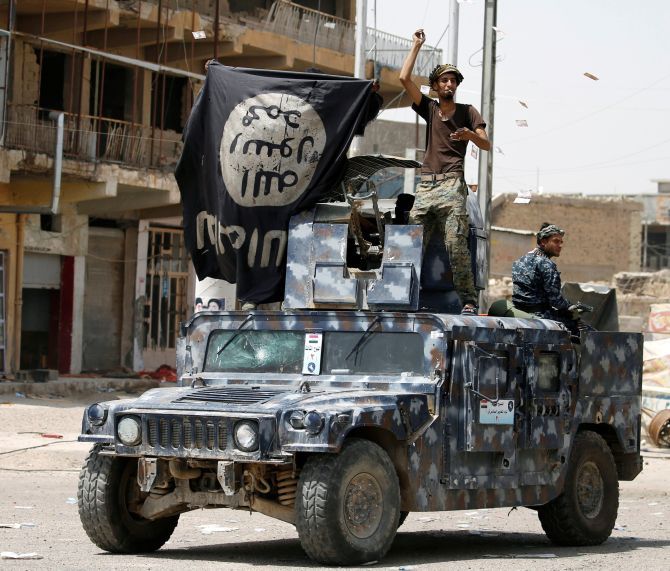
Territory controlled by the Islamic State shrunk by 12 per cent in the first six months of 2016, according to new analysis released today by IHS Inc, the leading global source of critical information and insight.
The analysis published on Sunday says the jihadist group, which proclaimed its self-styled “caliphate” in the two countries in 2014, is continuing to lose ground after a string of setbacks last year.
The territory controlled by the ultra-hardline Sunni group shrank from 90,800 sq km in January 2015, six months after it declared a caliphate in Syria and Iraq, to 68,300 sq km (26,370 square miles), the research firm said.
Furthermore, the Islamic State has also seen a decline in its primary revenue sources. In mid-2015, the Islamic State’s overall monthly revenue was around $80 million (Rs 537 crore). As of March 2016, the Islamic State’s monthly revenue dropped to $56 million (Rs 375 crore).
The Iraqi military’s recapture of Fallujah, an Islamic State stronghold just west of Baghdad, last month has led the insurgents to step up bombings on Shi'ite Muslim targets.
Nearly 300 people died when an Islamic State suicide bomber struck in a busy shopping district in Baghdad a week ago, in one of the worst such attacks by the group to date.
Islamic State lost control of the city of Ramadi at the end of last year, another key stronghold for the group which captured large swathes of Iraq in 2014. The army is now gearing up to retake Mosul, the largest city in Iraq’s north and Islamic State's de facto capital.
In May, the Pentagon said that IS had lost some 45 per cent of the territory it held in Iraq and between 16 and 20 percent of its territory in Syria.
IHS senior analyst Columb Strack said the losses were likely to mean IS would redouble its attempts at “mass casualty attacks”.
“As the Islamic State’s caliphate shrinks and it becomes increasingly clear that its governance project is failing, the group is reprioritising insurgency,” he said.
“We unfortunately expect an increase in mass casualty attacks and sabotage of economic infrastructure, across Iraq and Syria, and further afield, including Europe.”
Image: Members of Iraqi government forces celebrate on a street in Fallujah after government forces recaptured the city from Islamic State militants, Iraq. Photograph: Thaier Al-Sudani/Reuters











 © 2025
© 2025